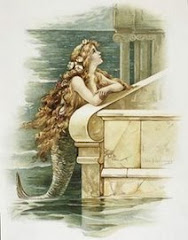I was busy going ga ga over this super comedy hungama of yesteryears, when a friend of mine stemmed my flow, "Yes, that's alright. But why just Padosan? Are'nt there other comedies that can make one die of laughter? Okay, so you don't much hold with the movies of your time - and I understand that you'd skip over Andaz Apna Apna, the Munnabhai series or the new Golmaal; but whatever happened to Hrishida's Chupke Chupke or Golmaal?"
And almost unthinkingly, pat came my reply - "Because all the other movies you've mentioned are movies, while Padosan is a nautanki!"
The more I thought of the words that had slipped from me, the more that idea grew firm inside my mind. Padosan is most certainly not a cinema! It is but a well-directed celluloid nautanki - an attempt to turn the 70 mm screen into a stage with deliberately artificial backdrops, unabashedly unnatural sequences, and unflinching melodrama thrown in to make this a comedy.
And boy, does it work!!!!
For the uninitiated, let me introduce you to Padosan, the directorial venture of Jyoti Swaroop, the first production of Mahmood's production house and an original piece of work based on the Bangla book 'Pasher Bari' by Arun Chowdhary. Released in 1968, if it boasted of veteran comedians like Kishore Kumar, Mehmood, Om Prakash, Mukri and Keshto Mukherji on one side, it also had Sunil Dutt - as a surprise package on the other side.
Comedy never really was Dutt's fort - neither before nor after Padosan.It was a wonderful surprize, therefore, for the audience to see the wayward rebel of Mother India metamorphose into the adorable Bhola of Padosan.
The backbone of this story - the pillar that single-handedly supported not only his friend Bhola but carried the entire drama on his shoulders was none other than that master of the act - Kishore Kumar. Bhola's 'Guru', his friend in need and deed, his philosopher, mentor and guide, and incidentally, his 'voice' as well. It is difficult to forget Guru, with his white dhoti-kurta, well-oiled centrally parted locks and the paan-stained mouth with the paan-juice trickling artistically from one corner from which the words "Arey Baangdu" never ceased to pour forth.
One - or rather several words of praise for the revered Mahmood. The quintessential South Indian music teacher, Master Pillai, whose sheer skill as an actor helped him portray a whole gamut of emotions - swinging between the extremes of elation and sorrow borne out of his love for Bindu.
Saira Bano was the eye candy and the possessor of the titular role - she played Bhola's Padosan and Master Pillai's comely pupil with just the right mixture of the sweet girl-next-door and the acerbic bitchy babe. This little minx left every man wanting to follow the Biblical command of 'Love Thy neighbour'.
So much so for the main cast. I also wish to wax eloquent about the support cast as well - many of whose names I don't even know!
Bhola's Mamaji - Om Prakash tickled us with his signature dialogue "Hum bhi ajeeb hain."
The scene where Guru conducts his rehearsal for the 'Laila Majnu' natak would have lost all its fizz had Lahauri, Banarasi (Mukri) and Kalkatiya (Keshto Mukherji) not been there with their histrionic skills.
Bhola's Mami, Bindu's parents and the match-fixing Pundit - all fitted the bill into roles seemingly tailor made for them.
Not to forget the music, never! R.D. Burman as the music director, experimented freely, giving us the comedy riot 'Ek chatur naar' and the dialogue-cum-musical 'Meri Pyaari Bindu' apart from the lovely melodies like 'Kehna hai' and 'Mere Saamne wali khidki me'. Also, watch out for the tunes of much older songs that pop into the story at pleasantly unexpected moments and see if you can identify them!
With a quaintly funny plot along with everything else, Padosan well-nigh lacks nothing! Look out for this movie the next time they deign to show it on some channel.
Subscribe to:
Post Comments (Atom)

No comments:
Post a Comment